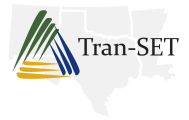Document Type
Report
Publication Date
11-2018
Abstract
Bridges are under deterioration due to various mechanical and environmental stressors. Hydraulic-related hazards (e.g., flood and scour), aggressive environmental conditions, and seismic events (e.g., earthquake) are recognized as the most significant threats to the safety of bridges. In traditional risk assessment methods for structures susceptible to damage due to floods and other natural hazards (e.g., corrosion and seismic events), future hazard predictions are conducted using historic return periods and climate records. However, recent increase in flood intensity in central-southern states indicate that future hazard occurrence rate may not necessarily follow past trends. Accordingly, current design, assessment, and management methodologies should adapt to these changes in order to ensure the satisfactory performance of bridges under the combined or cumulative action of hazards. This project addresses this need by presenting a framework for risk quantification and optimum management of bridges susceptible to damage due to floods, flood induced scour, and other gradual deterioration mechanism (e.g., corrosion and fatigue). Downscaled climate data, adopted from the global climate models, are employed to predict future flood hazard at a given location. Probabilistic simulation is used to quantify the time-dependent failure probability, which subsequently helps quantify the long-term sustainability through the systematic integration of economic, social, and environmental metrics associated with bridge failures. These profiles can be next used to obtain optimum interventions required to extend the service life while maintaining the structural performance above prescribed thresholds.
Recommended Citation
Soliman, M. (2018). Sustainability-Based Long-Term Management of Bridges under Multi-Hazard Exposure. Retrieved from https://repository.lsu.edu/transet_pubs/15
Included in
Civil Engineering Commons, Structural Engineering Commons, Transportation Engineering Commons


Comments
Tran-SET Project No. 17STOKS01